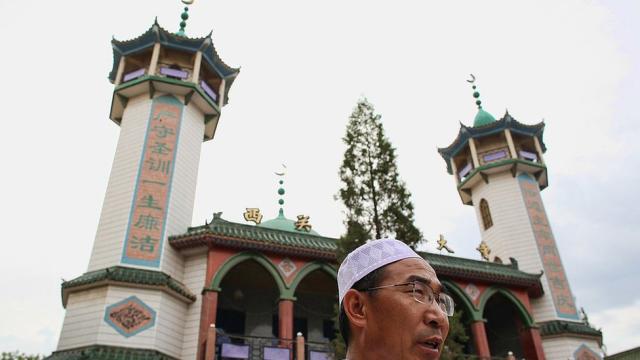HRW report exposes China’s mosque crackdown amidst allegations of religious suppression

A recent report by Human Rights Watch alleges that China is engaging in the closure, destruction, and repurposing of mosques as part of a deliberate effort to restrict the practice of Islam in the country.
According to Maya Wang, acting China director at HRW, this move by the Chinese government is systematic and aimed at curbing the Islamic practice within China.
The crackdown on organized religion, particularly Islam, has escalated in recent years, reflecting Beijing’s desire for increased control. This has led to the closure and alteration of mosques, especially in regions with significant Muslim populations like Xinjiang, Qinghai, Gansu, and Ningxia.
The report highlighted instances in villages such as Liaoqiao in Ningxia, where mosques had their domes and minarets removed, while others had their prayer halls destroyed.
Satellite imagery showcased the transformation of mosque structures into Chinese-style buildings between 2018 and 2020.
China, under Xi Jinping’s leadership, has aimed to align religious practices with its political ideology and cultural norms.
There’s been a governmental directive urging the control and reduction of mosques, emphasizing strict monitoring of their construction and funding.
The crackdown has been particularly severe in Xinjiang, where about two-thirds of the mosques have faced damage or destruction since 2017, according to an independent think-tank report.
Similar actions are also observed in Ningxia and Gansu, where mosque closures and alterations have been reported.
The consolidation of mosques, often accompanied by the relocation or combination of villagers, is rationalized by authorities as reducing economic burdens on Muslims.
However, this policy is seen by some as an attempt to redirect loyalty towards the Chinese Communist Party rather than religious faith.
Resistance against these “Sinicisation” policies has been met with repercussions, including detentions and imprisonments.

Authorities have systematically removed essential facilities from mosques, affecting religious practices and justifying further closures.
The state’s actions reflect a drastic narrowing of the space for religious expression and reinforce a specific vision of patriotism and religious observance, according to experts.
The campaigns seem to prioritize patriotism over religious beliefs and view any foreign influence as a threat.
This crackdown extends beyond Islam; other ethnic and religious groups, such as Tibetan Buddhists and Christians, have also faced restrictions and suppression of their practices by the Chinese government.
Human Rights Watch’s Asia director, Elaine Pearson, called for global attention to these human rights concerns.
Source-BBC





